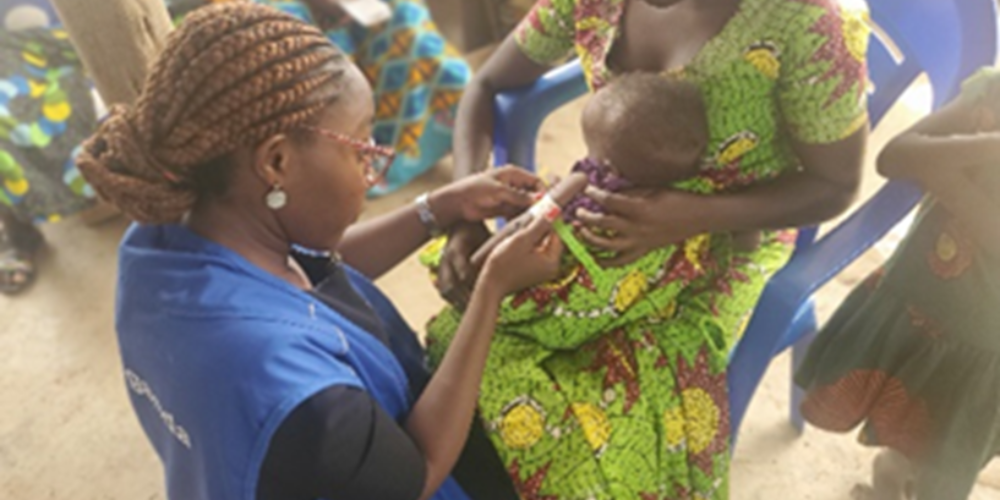
Ms.Sharon assessing the nutrition status of a baby at a Health Centre in Kyaka II refugee settlement
KRC-Uganda’s robust Human Resource (HR) department, bolstered by multiple donations, continues to expand its efforts in addressing malnutrition comprehensively in humanitarian settings. Through partnerships with international organizations, KRC-Uganda has evolved from dependency to autonomy, securing substantial multi-year grants, from international organizations like World Food Program (WFP). KRC-Uganda is extending its support to nutrition rehabilitation centers at health facilities, emphasizing the enhancement of multi-sectoral dimensions. Human Resources (HR) ultimately plays a pivotal role in strengthening systems and mobilizing resources. However, there remains a notable gap in the integration of nutrition services across the health systems of hosting districts.
The purpose of this study is to evaluate the quality and quantity of nutrition services provided at Bujubuli Health Centre IV in Kyegegwa District, which serves both refugees and nationals, during the month of January 2024. Specifically, the study aims to assess the technical staffing capacity available for nutrition services and supplies.
A semi-structured questionnaire was used in a cross-sectional approach, administered to participants, including 12 patients (qualitative) and 2 in-charge and nutritionist of the health facility (also qualitative). Respondents were selected using a combination of simple random and purposive sampling methods.

Happy mother and baby walking away with their nutritious foods from the health centre.
The findings reveal an average nutritionist-to-patient ratio of 1:700 per day, which is higher than the recommended ratio of 1:400 by the World Health Organization (WHO) in 2013. This nutritionist supports various clinics, including the Young Child Clinic (YCC), ANC, Out-patient Department (OPD), nutrition, and community outreaches, and is required to work day and night shifts for In- patient Therapeutic Care (ITC) admitted cases. The high ratio is justified by the continuous capacity-building platform available for the healthcare team, considering the diminishing funds from donors. However, these high numbers also contribute to long waiting times.
Over the last 4 months, there have been no stock-outs of therapeutic feeds. However, there is a growing need for buffer stocks due to the increasing number of clients, especially nationals attracted by the comprehensive services, which has further increased waiting times. KRC-Uganda, the lead nutrition partner, raised the need for more stock, and WFP responded positively. It is worth noting that the District Hospital does not have a nutritionist.
With the increasing demand for integrated health and nutrition services, particularly in the face of food insecurities, the primary focus should be on recognizing the importance of the nutrition profession. Therefore, it is recommended that the district prioritizes planning and budgeting for a nutritionist to facilitate robust coordination and collaboration with other stakeholders. Achieving this during KRC-Uganda’s tenure with the district would be a significant success.
By Nalunkuuma Sharon,
Program Manager, Kyaka II field office
KRC-Uganda


